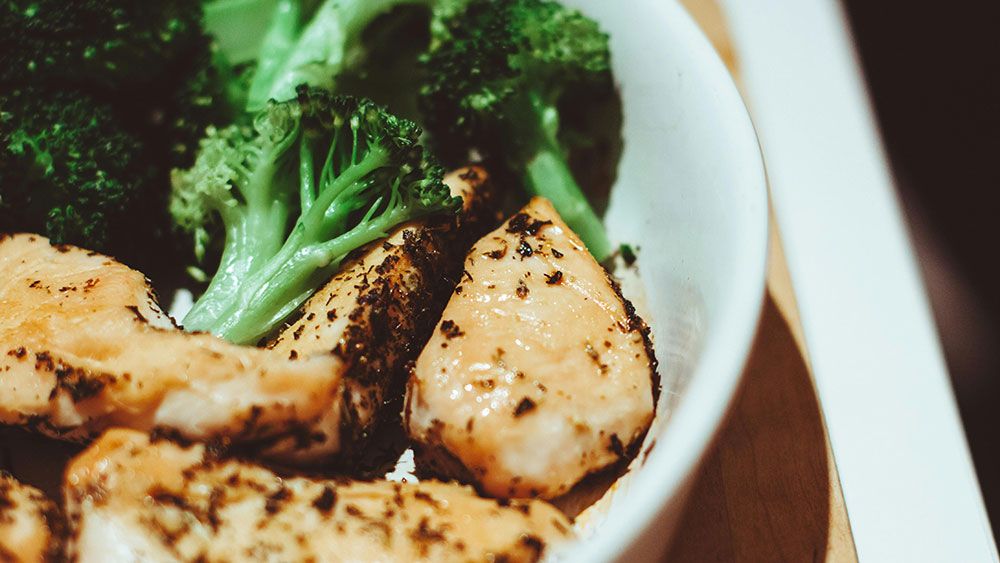
Post Workout Nutrition
Post-workout nutrition is a subject where there is a significant amount of discussion on the “best” or “right” thing to eat after working up a sweat at the gym. However, I don’t think there is just one correct way to eat after working out. What you eat after getting a good sweat depends on quite a few different variables including your goals, age, weight, and when you work out.
Since no two people are alike and there are so many different reasons why people workout, knowing what to eat can be very difficult, but I will break down this into a few main categories and times based on my personal knowledge and what works best in my opinion.
In my 10 years of training, the two main objectives for people are to either build muscle or lose weight. In addition, the day is split up into early morning and afternoon workouts or late afternoon and evening workouts.
So, where do we begin? With macronutrients! Macronutrients are proteins, fats, and carbohydrates. Our body uses these nutrients for energy and muscle repair. Eating the right amount of these nutrients is the key to
building muscle, losing weight and supplying your body with nutrients that will help you recover!
At the end, I provide two tables that give an example of the proportions of proteins, fats and carbohydrates based off an individual who consumes 2,000 calories a day. Before I do that, it’s
important to understand that “HEALTHY UNSATURATED FATS” like the fat you find in fish, nuts, and avocados, are not the bad guys and that eating fat does not directly correlate to making you fat. Please keep in mind that everybody is different and reacts to all combinations of macronutrients differently. As a result, you must find what works best for you! Not everybody digests certain food groups the same and you are the only person that knows your body best. So, what makes you gain weight and put on fat? The most common and simple answer, based off my knowledge, is carbs. Carbs that are highly refined cause our bodies to release insulin at a high level and insulin is the hormone that turns extra glucose or sugar into fat. This, in addition to consuming more calories than a person expends on a daily basis, leads to overall weight gain.
The reason I mention that is because the breakdown I give you for macronutrient intake might look vastly different than what you expected. For years, fat was mistakenly demonized, and carbs were exaggerated and falsely praised to be healthy. Both fats and carbs, when supplied by the right foods, and when not consumed at large amounts, can be beneficial to the body.
So, what are the best sources of these macro-nutrients (Carbs, Protein, and Fat) to eat after working out? To keep things simple the best carbs come from fruit, vegetables, oats, quinoa, beans, and peas. The best protein comes from lean sources of poultry and meat, beans, oats, nuts, eggs, all fish, shrimp, and yogurt. Finally, the best fats come from certain types of fish, avocados, cheese, eggs, nuts. Another possible supplement of healthy fat is MCT oil, which can be added to morning beverages such as coffee.
The proportions of these nutrients may be tailored to your age, gender and weight. However, your post-workout meal should be 25%-33% of your daily calories. Post workout meals do not need to be consumed right after working out, you can wait 2-3 hours before eating because we build muscle, heal, and recover while we sleep. We do have a little increase in nutrient uptake post-workout, but that’s because we are slightly depleted of nutrients. However, the increased metabolic rate, from working out, lasts 24-48 hours. As a result, waiting to eat will not decrease the ability to recover overnight. If you are hungry, eating the right foods, at the right time and supplying your body with the correct proportions of macronutrients is an important factor in achieving your weight loss goal. Try to keep in the following ranges (intended for a 2,000- calorie diet):
If you have any additional questions, feel free to email me at info@mtctrainer.com and if
you need any addition help calculating macronutrients this link may be helpful: https://www.bodybuilding.com/fun/macronutrients_calculator.htm